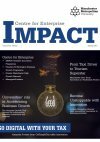
Supporting Enterprise
Putting knowledge to work to help you be enterprising. Turn your idea into a business with entrepreneurial knowledge and skills.
Overview
We work with undergraduates, graduates, alumni and academics to embed enterprise learning in the next generation of business leaders to enable them to start their own business.
Stimulating enterprise and entrepreneurship across throughout Europe is now seen by many governments as fundamental to driving economic success and social cohesion. We have helped achieve this aim through programmes such as the NW HE Enterprise Champions Project in the North West region of England.
The Enterprise Champions programme increased the number of new ventures and businesses started by graduates by scaling up the engagement in enterprise and entrepreneurial learning and supporting opportunities across the university campus. Phase One of the project ran from September 2008 until March 2010 and included 10 universities. Manchester Metropolitan University's Enterprise Champion team worked with over 1,000 students and helped to set up over 30 new businesses. Phase two of the project ran from 2010 to 2014. This phase focused on students and graduates starting up their own enterprises with the support of the team.
New opportunities
 Growing Apprenticeship Partnerships for SMEs (SME GAP)
Growing Apprenticeship Partnerships for SMEs (SME GAP)
There a number of organisations supporting apprenticeships. Often the message can be confused and routes into the system for the advisor, apprentice or the Small & Medium Enterprise (SME) is confusing. In addition, an understanding on the part of the SME of the long term benefits to be gained by taking on, training and later fully employing apprentices is lacking. In many countries there is not one single definition of apprenticeships, further acting as a barrier to the effective take up by SMEs.
Sustainability Alliance of Urban Networks in Asian Cities (SAUNAC)
SAUNAC is funded by the European Union’s ERASMUS+ programme and is a partnership of 5 European and 6 Vietnamese universities. The activity aims to build the capacity of the universities in Vietnam and their stakeholders to give them the tools to enable a transition in Vietnam through a number of activities that educate professionals and students to develop viable solutions for smart sustainable cities.
Essence: European Sustainable Solutions for Existing and New City Environments
ESSENCE is an Erasmus+ project, funded for three years from December 2014, working alongside the CARPE partners; Hamburg University of Applied Sciences, HU University of Applied Sciences Utrecht, Turku University of Applied Sciences, and the Universitat Polytècnica de València. This exciting project will encourage the development of smart sustainable cities through the creation of an international course focusing on innovative education. Particular attention will be given to blended learning, the use of creative tools in lessons, interdisciplinarity and entrepreneurship. MMU will host a five day ‘start up bootcamp, bringing together students from across the various European partners to develop their skills in enterprise and entrepreneurship against the background of a smart sustainable city.
FINCODA: Framework for Innovation Competencies Development and Assessment
This forward thinking project addresses the need to assess innovative competencies in employees and students through the development of a toolkit for behaviour assessment, available as a training e-guide. We will producea software application for innovation competencies assessment, alongside the development of a Massive Open Online Course (MOOC) to provide these tools to a wide European audience.
 CoMoViWo: Communication in Mobile and Virtual Work
CoMoViWo: Communication in Mobile and Virtual Work
CoMoViWo is an Erasmus+ project, which will work to prepare students for the challenges of an international work environment. The project will develop understanding of the communication literacy needed by employees and managers to be successful in the virtual and mobile work environment. Using CfE’s extensive experience in this area, we will link the worlds of business and academia, producing considered research on the topic, alongside the development of virtual communication training modules. English and Spanish will be the languages used as a lingua franca in the modules
View an archive of our past enterprise programmes






